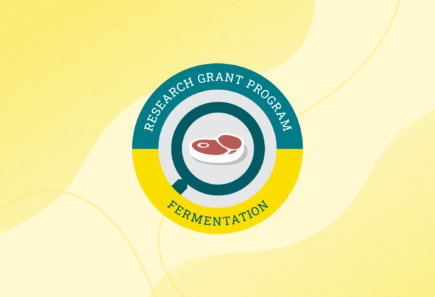
Green downstream processing
Years active: 2024This research project intends to develop an innovative approach for downstream processing of precision fermentation biomasses.

This research project intends to develop an innovative approach for downstream processing of precision fermentation biomasses.

New protein extraction processes will be developed for yeast-based meat proteins to reduce costs and negative environmental impact.

A biotech solution is designed and evaluated to eliminate the need for expensive equipment and large amounts of energy in protein purification.
Mammalian cell culture performance can be limited by oxygen and carbon dioxide levels or by shear stress associated with sparging and mixing. The use of protein-based oxygen carriers could help to address these issues in the context of a cultivated meat bioprocess.

This project proposes a two-stage process using agave bagasse and tortilla industry effluents to produce single-cell proteins through fermentation processes.

This project will develop new tools and knowledge on optimized, scalable, and sustainable fermentation-derived protein based on low-cost, food-grade carbon sourced from waste.

Development of sustainable production technology for the manufacturing of high-quality chicken mushroom mycelium as a future meat substitute.
Optimizing bioreactor and bioprocessing technologies for the needs of the cultivated meat industry has the potential to substantially reduce the cost of cultivated meat production. Innovations in cultivated meat bioprocessing can be broadly classified into strategies focused on food-grade operation, process intensification, and the exploration of novel bioreactor geometries.

This project will optimize large-scale fermenter design and operating conditions. The team will model cell growth, fluid dynamics, and cell viability during scale up. Simultaneously, they will use flow chambers to understand cells’ reaction to physical and chemical stresses.

This project will incorporate computational fluid dynamics and genome-scale metabolic models into techno-economic analyses. This detailed model of bioreactor performance and cell behavior will enable assessment and optimization of novel bioreactor designs more cost effectively than building and testing prototypes.